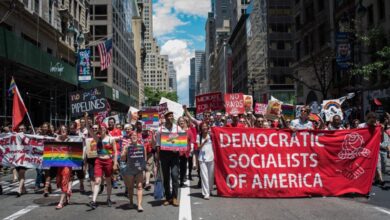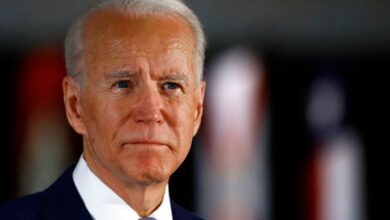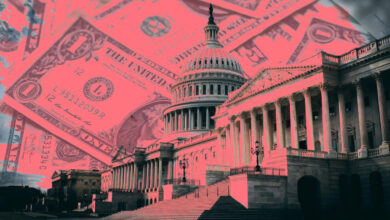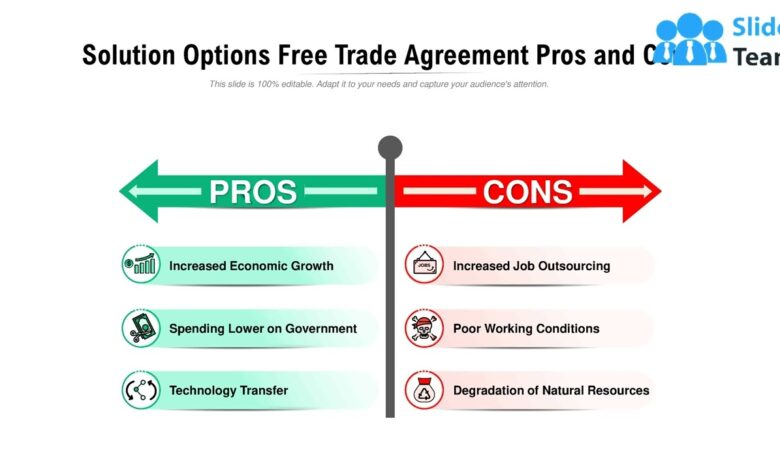
The Discrediting of Free Trade: A Critical Examination
The discrediting of free trade is a complex and multifaceted issue, raising concerns about its impact on economies, societies, and the environment. This narrative delves into the historical context, economic arguments, political and social consequences, and the role of labor in shaping the debate surrounding free trade.
From the rise of mercantilism to the modern era of globalization, free trade has been a subject of intense scrutiny and debate. While proponents argue for its benefits in promoting economic growth and global prosperity, critics highlight its potential drawbacks, including job losses, wage suppression, and environmental degradation.
The debate surrounding free trade is far from settled, and its future trajectory remains uncertain.
Historical Context of Free Trade
Free trade, the idea of unrestricted international commerce, has been a recurring theme throughout history, evolving from its early roots in mercantilism to its modern manifestation in globalization. Its journey has been marked by periods of enthusiastic adoption and fierce opposition, reflecting changing economic and political realities.
Evolution of Free Trade Principles
The evolution of free trade principles can be traced back to the 16th and 17th centuries, during the era of mercantilism. This economic doctrine emphasized national wealth accumulation through trade surpluses, with governments actively intervening to promote exports and restrict imports.
Mercantilist policies, often characterized by protectionist measures like tariffs and quotas, aimed to strengthen national power by maximizing gold reserves and fostering domestic industries.However, the Enlightenment period witnessed a shift towards more liberal economic ideas, championed by thinkers like Adam Smith and David Ricardo.
Smith, in his seminal work “The Wealth of Nations” (1776), argued that free trade, driven by the “invisible hand” of the market, would ultimately benefit all nations by promoting specialization, efficiency, and increased productivity. Ricardo’s theory of comparative advantage further elaborated on this principle, demonstrating that countries could gain by specializing in producing goods and services where they had a relative cost advantage, even if they were more efficient in producing everything.The 19th century saw the rise of free trade as a dominant economic philosophy, with the repeal of the Corn Laws in Britain in 1846 marking a pivotal moment.
This period witnessed a surge in global trade, fueled by technological advancements like the steam engine and the telegraph, which facilitated transportation and communication. However, the late 19th and early 20th centuries saw a resurgence of protectionist sentiment, driven by factors such as the rise of industrialization, competition from emerging economies, and the economic fallout from the First World War.The Great Depression of the 1930s dealt a significant blow to the free trade movement.
In an attempt to protect domestic industries and stimulate economic recovery, many countries resorted to protectionist policies, leading to a decline in global trade. This experience reinforced the belief that free trade could be vulnerable to economic shocks and that government intervention might be necessary to stabilize markets and protect national interests.The post-World War II era witnessed a renewed push for free trade, driven by the desire to foster economic cooperation and prevent future conflicts.
The establishment of international organizations like the General Agreement on Tariffs and Trade (GATT), later transformed into the World Trade Organization (WTO), aimed to reduce trade barriers and promote free trade through multilateral negotiations.
Arguments for and Against Free Trade, The discrediting of free trade
Throughout history, proponents of free trade have argued that it leads to increased economic growth, lower prices for consumers, greater choice, and improved efficiency. They contend that free trade encourages specialization, allows countries to focus on producing goods and services where they have a comparative advantage, and promotes innovation and technological advancement.Conversely, critics of free trade have argued that it can lead to job losses, environmental degradation, and a widening gap between rich and poor.
They point to the potential for exploitation of workers in developing countries, the weakening of environmental regulations, and the displacement of domestic industries by cheaper imports. They also argue that free trade can undermine national sovereignty and make countries more vulnerable to external economic shocks.
Historical Events that Contributed to the Discrediting of Free Trade
Several historical events have contributed to the discrediting of free trade, leading to periods of increased protectionist sentiment.
- The Great Depression (1929-1939): The Great Depression, a severe global economic downturn, saw a sharp decline in international trade as countries resorted to protectionist measures in an attempt to protect domestic industries and stimulate economic recovery. This experience reinforced the belief that free trade could be vulnerable to economic shocks and that government intervention might be necessary to stabilize markets and protect national interests.
- The Rise of Protectionism in the 1930s: The Smoot-Hawley Tariff Act of 1930, enacted by the United States, raised tariffs on a wide range of imported goods. This act, intended to protect American industries, triggered a global trade war as other countries retaliated with their own protectionist measures.
The resulting decline in international trade exacerbated the Great Depression and contributed to the rise of protectionist sentiment worldwide.
- The Rise of Protectionism in the 1970s and 1980s: The 1970s and 1980s witnessed a resurgence of protectionist sentiment, driven by factors such as the rise of industrialization in developing countries, increased competition from emerging economies, and the economic fallout from the oil crises.
This period saw a rise in non-tariff barriers, such as quotas and subsidies, as well as a renewed focus on domestic industries.
Economic Arguments Against Free Trade: The Discrediting Of Free Trade
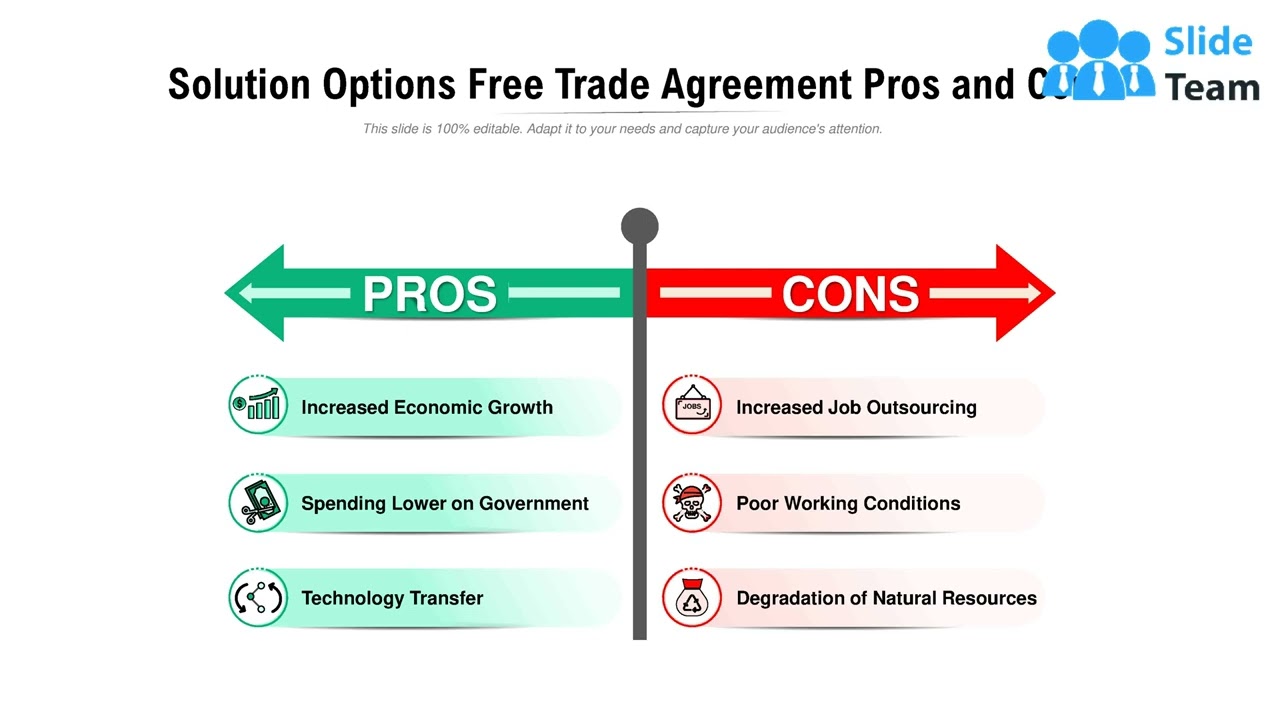
While free trade proponents often tout its benefits, there are valid economic arguments against its unfettered implementation. Critics argue that free trade can have detrimental consequences for certain sectors, workers, and the environment, especially when not carefully managed.
Job Losses and Wage Suppression
Free trade can lead to job losses in industries that cannot compete with cheaper imports. This is particularly true for industries with labor-intensive production processes, as companies may relocate their operations to countries with lower wages. For example, the rise of manufacturing in China has led to job losses in the textile and manufacturing sectors in developed countries.
The influx of cheap Chinese imports has made it difficult for domestic producers to compete, resulting in factory closures and job displacement.Furthermore, free trade can lead to wage suppression, as companies can threaten to move their operations to countries with lower labor costs.
The idea of free trade, once lauded as a path to prosperity, is increasingly facing skepticism. It’s hard to argue for open markets when you see the kind of geopolitical turmoil unfolding in Ukraine, where U.S. intelligence is reportedly aiding in the targeting of Russian military leaders.
This conflict highlights the fragility of global interdependence, raising questions about whether the benefits of free trade outweigh the risks of economic and political instability.
This creates downward pressure on wages, as workers are forced to accept lower pay to keep their jobs.
“Free trade can lead to job losses and wage suppression, as companies can threaten to move their operations to countries with lower labor costs.”
Environmental Degradation
Free trade can also contribute to environmental degradation. As trade increases, so does the demand for transportation and production, leading to increased greenhouse gas emissions. Moreover, the pursuit of cheap production costs can incentivize companies to move their operations to countries with weaker environmental regulations, leading to pollution and resource depletion.For instance, the increased demand for palm oil, fueled by global trade, has led to widespread deforestation in Indonesia and Malaysia, contributing to biodiversity loss and climate change.
Impact on Developed and Developing Countries
The impact of free trade on developed and developing countries can differ significantly. Developed countries with strong economies and advanced technology can often benefit from free trade, as they can leverage their competitive advantages to export goods and services. However, developing countries may face challenges in competing with developed nations, especially in sectors where they lack the necessary infrastructure or skilled labor.For example, the North American Free Trade Agreement (NAFTA) has been credited with boosting trade between the US, Canada, and Mexico.
However, some argue that it has also contributed to job losses in the US manufacturing sector, as companies moved production to Mexico, where labor costs are lower.
The discrediting of free trade isn’t just about tariffs and trade wars, it’s about a deeper sense of distrust, a fear of being left behind. This same sentiment is echoing in the tech world, where fear and loathing return to tech start ups , fueled by anxieties about job security and the ever-changing landscape of innovation.
Just as we’re questioning the benefits of unfettered global trade, we’re also scrutinizing the promises of Silicon Valley, seeking a more balanced and responsible approach to both.
Trade Agreements and Global Economic Inequality
Trade agreements often contain provisions that can exacerbate global economic inequality. For instance, intellectual property rights agreements can give multinational corporations exclusive control over technologies and innovations, limiting access and competition for developing countries. Similarly, investment agreements can provide foreign investors with preferential treatment, potentially undermining domestic businesses and workers.
“Trade agreements often contain provisions that can exacerbate global economic inequality.”
The World Trade Organization (WTO) has been criticized for its role in promoting free trade without adequately addressing concerns about its potential negative impacts on developing countries. Critics argue that the WTO’s rules favor developed countries and that they have not done enough to ensure fair trade practices that benefit all countries.
Political and Social Consequences of Free Trade
While the economic benefits of free trade are often touted, it’s crucial to acknowledge the political and social consequences that can arise from its implementation. These consequences can be significant, affecting individuals, communities, and even global stability.
Political Backlash Against Free Trade
The perceived negative consequences of free trade, such as job losses, wage stagnation, and increased inequality, have fueled political backlash against globalization. This backlash has manifested in the rise of populism and nationalism, with political parties and movements advocating for protectionist policies and a return to national sovereignty.
The recent pushback against free trade feels a lot like the way blue states are responding to Uvalde – a desperate attempt to regain control after a tragedy. It’s understandable, but it’s also a dangerous path. Blue states are responding to Uvalde with calls for stricter gun control, while free trade opponents are calling for more government intervention.
Both approaches are fueled by fear, and both risk creating more problems than they solve.
- The rise of Donald Trump in the United States and the Brexit movement in the United Kingdom are prime examples of this backlash. Both movements capitalized on public anxieties about globalization and promised to protect national interests from foreign competition.
- The populist surge in Europe, with parties like the National Front in France and the Alternative for Germany gaining traction, also reflects a growing rejection of free trade and its perceived negative consequences.
Social and Cultural Impacts of Globalization
Globalization, driven by free trade, has had a profound impact on societies worldwide. While it has facilitated cultural exchange and interconnectedness, it has also led to concerns about cultural homogenization and the erosion of local identities.
- The spread of Western culture through media, entertainment, and consumer goods has led to concerns about the homogenization of cultures and the displacement of local traditions.
- The rise of multinational corporations and the standardization of products and services can also contribute to the erosion of local identities and cultural diversity.
Relationship Between Free Trade and Social Unrest
The relationship between free trade and social unrest is complex and multifaceted. While free trade can potentially lead to economic growth and development, it can also exacerbate social inequalities and create tensions that can lead to unrest.
- The displacement of workers in industries that are unable to compete with foreign competition can lead to social unrest, as seen in the protests against the North American Free Trade Agreement (NAFTA) in Mexico and the United States.
- The concentration of wealth in the hands of a few, while others struggle to make ends meet, can also create social tensions and contribute to political instability. This dynamic was evident in the Arab Spring uprisings, where economic grievances played a significant role in fueling protests.
The Role of Labor in Free Trade Debates
Free trade agreements, while often touted for their potential to boost economic growth and expand global markets, have also sparked heated debates regarding their impact on labor. Concerns about the effects of free trade on worker rights, wages, and employment have been a central focus of these debates, with labor unions and worker advocacy groups often expressing strong opposition to certain aspects of free trade policies.
Labor Union Concerns Regarding Free Trade
Labor unions have consistently raised concerns about the potential negative consequences of free trade on workers. They argue that free trade can lead to job losses, wage suppression, and a weakening of labor standards.
- Job displacement:Unions contend that free trade can lead to job losses in domestic industries as businesses relocate production to countries with lower labor costs. This can result in unemployment and economic hardship for workers who lose their jobs.
- Wage suppression:Unions argue that free trade can put downward pressure on wages as businesses face competition from companies in countries with lower labor standards.
This can lead to a race to the bottom, where wages and working conditions deteriorate in an effort to remain competitive.
- Weakening of labor standards:Unions express concern that free trade agreements can weaken labor standards by allowing businesses to operate in countries with lax regulations on working conditions, wages, and worker rights.
This can result in exploitation of workers and a decline in overall labor conditions.
Last Recap
As we navigate a world grappling with economic inequality, political instability, and climate change, the future of free trade is uncertain. The challenges posed by globalization demand a nuanced approach, one that acknowledges both the potential benefits and the inherent risks associated with unfettered free trade.
The need for reform and alternative models, such as fair trade or ethical trade, is becoming increasingly apparent. By addressing the concerns of workers, promoting sustainable practices, and ensuring equitable distribution of benefits, we can strive towards a more just and sustainable global trading system.


